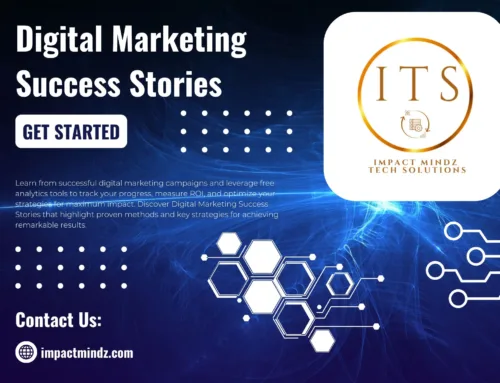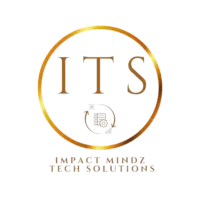This blog delves into the versatility of Python, exploring its capabilities in web development (both with and without frameworks), Android app creation, data analysis, machine learning, and more. We’ll showcase real-world applications, delve into the benefits of Python development, and equip you with the knowledge to determine if this powerful language aligns with your business goals.
Why Python? A Language Built for Versatility
Python’s popularity stems from its inherent strengths. Unlike some programming languages known for their steep learning curves and complex syntax, Python boasts a clear, concise, and readable structure. This makes it a fantastic choice for seasoned developers seeking efficiency and those new to programming who want a gentle introduction to the world of code.
Beyond readability, Python offers a rich ecosystem of libraries and frameworks that cater to a vast array of functionalities. Whether you need to build a dynamic web application, analyze mountains of data, or create intelligent algorithms, Python likely has a library readily available to simplify the process. This extensive ecosystem empowers developers to focus on core functionalities rather than reinventing the wheel, leading to faster development cycles and more efficient solutions.
Here’s a glimpse into some of the key areas where Python shines:
Web Development: From simple static websites to complex e-commerce platforms and interactive web applications, Python empowers developers to create robust and scalable web solutions. Frameworks like Django and Flask streamline development by providing pre-built structures and functionalities, but Python’s true power lies in its ability to craft applications from the ground up using WSGI (Web Server Gateway Interface). This approach offers ultimate control and flexibility, allowing developers to tailor applications to specific business needs without limitations.
Data Analysis and Machine Learning: Python has become the go-to language for data scientists and machine learning engineers. Libraries like NumPy, Pandas, Scikit-learn, and TensorFlow provide powerful tools for data manipulation, statistical analysis, and building sophisticated machine learning models. Businesses across industries are leveraging Python for tasks like customer segmentation, fraud detection, predictive analytics, and even natural language processing.
Automation and Scripting: Python’s simplicity and efficiency make it ideal for automating repetitive tasks and building scripts to streamline workflows. Businesses can leverage Python for tasks like testing automation, data scraping, file management, and system administration, freeing up valuable human resources for more strategic endeavors.
Desktop Applications and Games: While not as prevalent as web development, Python can also be used to create desktop applications and even games. Libraries like PyQt and Kivy provide tools for building user interfaces and interactive experiences.
Beyond the Basics: Exploring Python’s Web Development Prowess
As mentioned earlier, Python offers a two-pronged approach to web development:
frameworks and the WSGI standard. Let’s explore both options in detail.
The Framework Advantage: Frameworks like Django and Flask offer a pre-defined structure for web applications, including functionalities like user authentication, database management, and URL routing. This approach simplifies the development process by providing a solid foundation, allowing developers to focus on application-specific logic. Django is a full-featured framework suitable for complex web applications, while Flask offers a more lightweight approach for simpler projects.
The Power of WSGI: For those seeking ultimate control and flexibility, Python’s WSGI standard allows developers to build web applications from scratch. This approach requires a deeper understanding of web development concepts but offers complete freedom to tailor the application architecture to specific needs. While it might require more initial effort, WSGI development can lead to highly optimized and efficient web applications, particularly for high-traffic or resource-intensive projects.

Python Web Development Without Framework: A Real-World Example
The Benefits of Python Web Development:
Rapid Development: Python’s clear syntax and readily available libraries accelerate development cycles compared to languages with steeper learning curves.
Scalability and Performance: Python applications can be readily scaled to accommodate increased traffic or data volume, ensuring your web platform remains robust as your business grows.
Cost-Effectiveness: Python’s open-source nature and efficient development process often lead to lower development costs than proprietary languages. While most Android applications are built with Java or Kotlin, Python offers an alternative approach through frameworks like Kivy. Kivy is an open-source framework that allows developers to create native Android applications using Python code.
Simplified Development: Python’s readability translates to faster development cycles for Android applications. Developers familiar with Python can leverage their existing skills and reduce the learning curve associated with Java or Kotlin.
Cross-Platform Compatibility: Kivy applications can be easily ported to other platforms like iOS, Windows, and Linux with minimal code changes. This allows businesses to create a single codebase that can be deployed across multiple operating systems, saving time and resources.
Rapid Prototyping: Python’s prototyping capabilities make it ideal for quickly building and testing initial versions of Android applications. This allows businesses to validate concepts and gather user feedback before investing heavily in native development.
However, it’s important to acknowledge some limitations of Python for Android development:
Performance: While Kivy strives to optimize performance, native Java or Kotlin applications might still outperform Python apps in some cases, particularly for graphically demanding games or highly interactive applications.
Limited Library Support: Compared to the vast ecosystem of Android development libraries in Java or Kotlin, Python’s options are somewhat limited. This might restrict functionality for certain types of applications.
Making the Choice: Python vs. Native Development forlibrary and framework ecosystem that caters development for Android hinges on your specific project requirements.
Here’s a breakdown to guide your decision:
Choose Python if:
You prioritize rapid development and cross-platform compatibility.
Your application is concept-driven and requires quick prototyping.
You have a team familiar with Python but not necessarily with native Android development.
Choose native development (Java/Kotlin) if:
Performance is critical for your application.
You require access to a wider range of Android-specific libraries and functionalities.
You have a longer development timeline and resources to invest in a potentially more complex development process.
Beyond Web and Mobile: Python’s Diverse Applications
Python’s versatility extends far beyond web and mobile development.
Here are some additional areas where this powerful language shines:
Data Analysis and Machine Learning: As mentioned earlier, Python has become the preferred language for data scientists and machine learning engineers. Its extensive libraries allow for efficient data manipulation, exploration, and model building.
Scientific Computing: Python offers a rich ecosystem of libraries like SciPy and Matplotlib, making it a popular choice for scientific computing tasks like numerical analysis, signal processing, and data visualization.
Automation and Scripting: Python’s simplicity makes it ideal for automating repetitive tasks and building scripts to streamline workflows. This can save businesses significant time and resources across various departments.
Network Programming: Libraries like Requests and Para Miko empower developers to build robust network applications and interact with various network protocols.

The Impact Mindz Advantage: Unleashing Python’s Potential for Your Business
We take pride in crafting custom Python solutions that are:
Scalable and future-proof: Our solutions are designed to grow alongside your business, accommodating increased data volumes and evolving needs.
Performance-optimized: We prioritize efficient code and leverage best practices to ensure your Python applications perform optimally.
Maintainable and secure: We write clean, well-documented code that facilitates future maintenance and prioritizes security measures to protect your data.
Ready to Explore the Power of Python? Contact Us Today!
Python’s versatility, vast ecosystem, and developer-friendly nature make it a valuable asset for businesses across industries. At Impact Mindz Tech Solutions, we’re passionate about helping you leverage Python’s capabilities to achieve your business objectives.
Contact us today link to Impact Mindz Tech Solutions Contact Us page to discuss your project and explore how Python development can revolutionize your business. We are excited to collaborate with you and transform your vision into reality!






